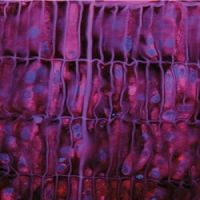According to Mayo Clinic researchers, 10 percent of all patients who come to the hospital with the most severe type of heart attack have a history of cancer. They also found that this emerging subgroup of heart patients has a three times higher risk of noncardiac death. The findings are published in Mayo Clinic Proceedings.
See Also: Cardio-Oncology: A Developing Specialty for Comprehensive Cardiac Care
Interestingly, the results also show that these patients with a history of cancer, despite arriving to the hospital sicker, do not have increased risk of cardiac death, both at the time of their acute heart attack and over long-term follow-up. "This indicates that these patients receive the same, if not greater, benefit from angioplasty for an acute heart attack," says senior author Joerg Herrmann, MD, who works as interventional cardiologist at Mayo Clinic.
Dr. Herrmann and colleagues conducted a retrospective cohort study of 2,346 patients seen at Mayo Clinic's Rochester campus for an ST-elevation myocardial infarction, the most severe acute heart attack. Their research covered a 10-year period, beginning in 2000, when the newest and current types of stents were introduced into clinical practice. Participants were followed for acute and long-term outcomes for an average of six years.
Data showed that patients with a history of cancer arrived at the hospital more frequently with cardiogenic shock, where the heart suddenly cannot pump enough blood. In addition, they more often received intra-aortic balloon pump therapy, a device inserted to help the heart pump blood, and possibly indicating a reduced cardiac reserve.
Other study findings are:
• Patients with a history of cancer have a significantly higher possibility of dying in the hospital for reasons unrelated to the heart, despite arriving at the hospital with an acute heart attack.
• Patients diagnosed within the six months before the heart attack had the highest (sevenfold increased) risk of death in the hospital following angioplasty. The reason is not clear, says Dr. Herrmann.
• Patients with a history of cancer have a significantly higher risk of being hospitalised for heart failure during follow-up. With optimal medical treatment, however, there is no increased risk of dying from heart disease. These patients eventually die from their cancer disease, the researchers found.
The results help to deepen knowledge about the concept of care known as "cardio-oncology," an emerging medical discipline.
"This study supports the importance of cardiologists and oncologists working together to care for these patients," Dr. Herrmann points out. "Clearly, our goal is that the cancer patients of today do not become the cardiac patients of the future and, if they do, that we comprehensively see them through."
Source: Mayo Clinic
Image Credit: Wikimedia Commons
References:
Wang F, Gulati R, Lennon RJ, Lewis BR,
Park J, Sandhu GS, Wright Rs, Lerman A, Herrmann J (2016) Cancer historyportends worse acute and long-term noncardiac (but not cardiac)mortality after primary percutaneous coronrary intervention for acuteST-segment elevation myocardial infarction. Mayo Clin Proc, 91(12):
1680-92.
Latest Articles
Cardiac Care, Heart Attack, Cancer
According to Mayo Clinic researchers, 10 percent of all patients who come to the hospital with the most severe type of heart attack have a history of cancer. They also found that this emerging subgroup of heart patients has a three times higher risk of no



























